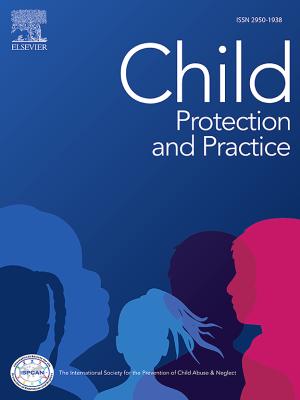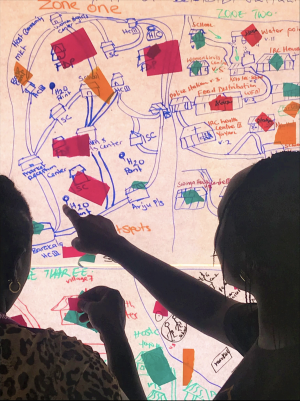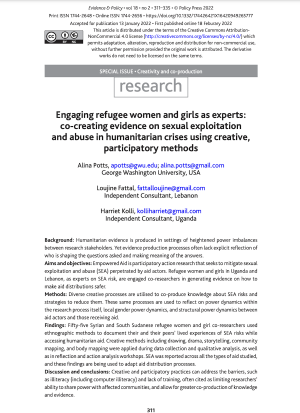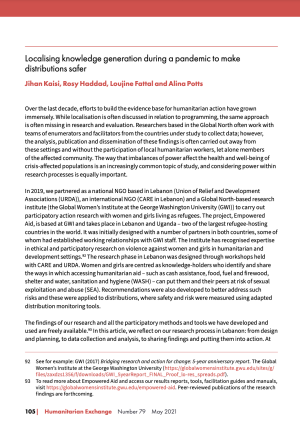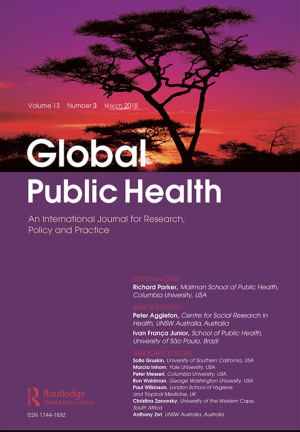Co-creating accompanying systems to improve adolescent girls' and women's access to services
This article summarizes Empowered Aid's work in Jordan, implemented through a partnership between the Global Women's Institute and World Vision Syria Response. It captures how participatory approaches were used to center women and girls in identifying context-specific risks of sexual exploitation and abuse (SEA) and actions to address them, while engaging other community members and holding aid actors accountable for taking action. It describes how the creation of accompaniment systems can enhance refugee women and girls' safety and access to services as they navigate gender-unequal environments.


